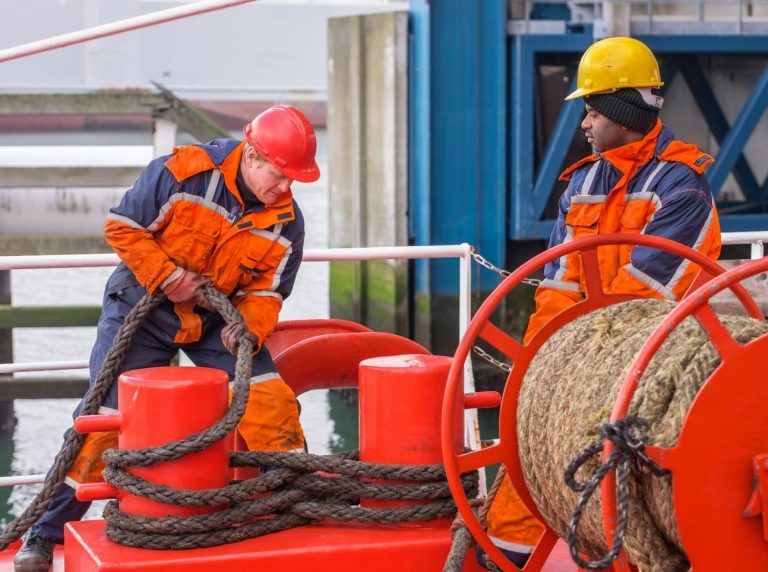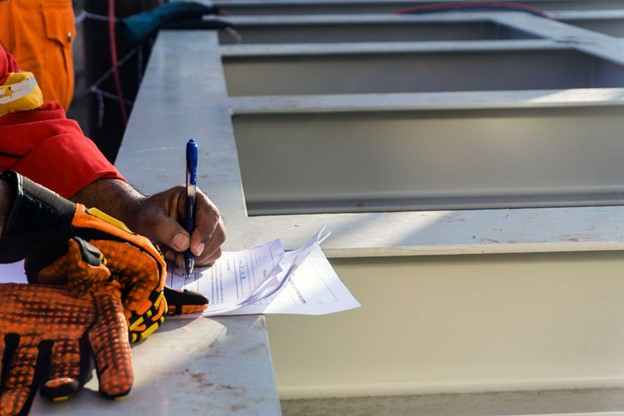Maritime and offshore workers are exposed to many severe weather conditions. During the hottest months of the year, these workers are at high risk of heat-related illnesses.
Our maritime and offshore injury lawyers want workers and employers to know how to recognize the signs of heat illnesses and what to do if someone is suffering from these heat-related illness symptoms.
Heat Exhaustion
Someone showing the following symptoms may be suffering from heat exhaustion:
- Excessive sweating
- Severe thirst
- Rapid breathing and/or pulse
- Headaches
- Blurred vision
- Weakness
- Fatigue
- Dizziness
- Fainting
- Muscle cramps
If a worker exhibits any of these signs of heat exhaustion, immediately move him or her to a shaded area. A worker showing heat exhaustion symptoms should not be left alone. Heavy clothing should be removed. The worker should be given a cup of cool water to drink every 15 minutes. Fan the worker, spray him or her with cool water, and apply a wet cloth to the skin.
If symptoms do not improve within a few minutes, call 9-1-1. Any worker suffering from heat exhaustion should not return to work for the rest of the day.
Heat Stroke
If a worker exhibits the following symptoms, he or she may be suffering from heat stroke:
- Not sweating
- Skin is hot, red and/or dry
- Pupils are small “pinpoints”
- Convulsing
- Confused
- Collapse
These signs should be treated as a medical emergency and 9-1-1 should be called right away. Move the worker to a cooler, shaded area. He or she should lie down and be fanned/sprayed with cool water. Place ice packs under the armpits and around the groin. Someone should remain with a person with heat stroke symptoms until paramedics arrive on the scene.
Heat-Related Illness Prevention
In order to avoid the heat-related illnesses above, it’s important that both employers and employees understand how to avoid heat exhaustion at work:
- If you start to feel any of the symptoms above, immediately stop and tell your supervisor
- Drink plenty of water or electrolyte drinks, even when you’re not feeling thirsty
- Hold off on the most intensive work until cooler parts of the day, such as first thing in the morning or late in the evening
- Wear clothing that is light-weight and fits loosely
- Wear a hat
- Avoid drinking alcohol and caffeine before and during working hours
- Pace yourself, and work on building up a tolerance to working in hot conditions
- Frequent rest breaks should be implemented, with breaks taken away from the sun in air conditioned environments
- Education and training for the health risks of heat and signs of heat-related illness should be provided to prevent heat stroke at work
- Employees should monitor themselves and their coworkers continuously for signs of heat exhaustion, and never ignore them
The Consequences of Working in the Heat for Long Periods
When warm weather and dehydration combine, maritime workers can suffer reductions in their cognitive function, impeding their ability to make decisions and judge situations accurately. This impediment can also continue to negatively affect decision-making over long periods of time.
Long-term exposure to heat, such as sleeping quarters with no air conditioning, can also negatively affect length and quality of sleep, leaving the body that much more vulnerable to the next day’s heat.
These and the many other heat-related illness facts can drastically increase the chances of becoming injured while working at sea. If this has happened to you, you may be entitled to seek compensation from the vessel owner or your employer for missed time at work, medical expenses, and more.
Your Legal Rights as a Maritime Worker
As a seaman who suffered heat illness while on the job, you are entitled to protections under general maritime law, which includes maintenance and cure. Maintenance refers to weekly payments from your employer to cover your living expenses while you recover, and cure includes payment for any medical treatment you need as a result of your illness from heat exposure. These benefits are available to you regardless of fault.
In addition to general maritime law, the Jones Act provides further protection. If you can prove that your employer or the vessel owner was negligent and that their negligence contributed to your illness, you may be entitled to additional compensation under the Jones Act. This compensation can cover lost wages, pain and suffering, and other damages.
As experienced maritime attorneys, Schechter, Shaffer & Harris have recovered over $1 billion for injured seamen. If you suffered a serious heat-related illness during your time working on a vessel, offshore rig, or in a port, you can get compensation. But you must file your claim within the three year statute of limitations.
Our attorneys have decades of experience in complex maritime law, and can help you get the money you deserve for your heat-related illness injury. Call us today about your legal rights at 800-836-5830.









